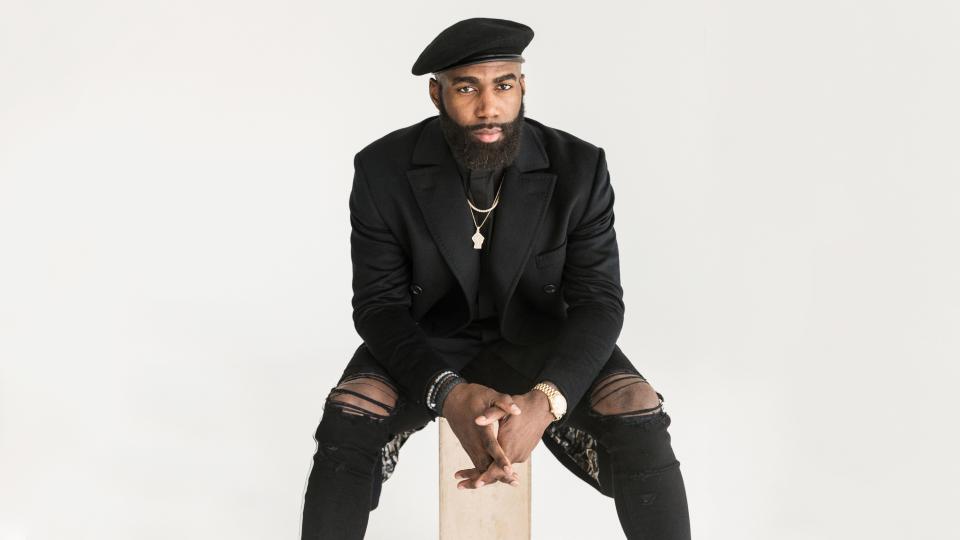Malcolm Jenkins on Winning the Super Bowl, Activism in the NFL, and Almost Dropping the Vince Lombardi Trophy
In a year where Malcolm Jenkins did almost everything right, the Philadelphia Eagles star defensive back nearly ended his Super Bowl-winning season with one very grave mistake—dude almost dropped the trophy at the Eagles' victory parade.
"The next day I woke up—and, obviously, I was pretty intoxicated—and I'm like, Maaan, I really almost dropped the trophy. I hope that's not a big thing," he says a month later. "But you know, it was just on par for the day. You see Jason Kelce literally crowdsurfing, guys riding bikes, there was so much stuff going on that it was like, eh, somebody almost dropped the trophy. It had to be somebody. Why not me?"
And it's true: why not Malcolm Jenkins, considering everything else he did this year? Selected to his second Pro Bowl, he helped lead his team to a Super Bowl victory over the Patriots' Evil Empire, bringing the Lombardi Trophy back to one of the most rabid fan bases in all of sports. But, really, that was just a minor accomplishment in the context of his season. As one of the most vocal supporters of the protest movement Colin Kaepernick began in 2016, Jenkins helped turn that conversation into action this year. He was a leading force in convincing the NFL to pledge $89 million to issues of the players' choosing, an outspoken advocate of criminal justice reform, and a catalyst behind the league's "Let's Listen Together" program, an initiative to spark conversations around social justice. (All of this while already running his own foundation for youth development in underserved communities.) At 30, his on- and off-the-field production should remain an NFL mainstay for the near future. That's good news for Eagles fans—and everyone else, too.
We caught up with Jenkins last week as he was passing through New York, still full-on soaking in post-Super Bowl glory. He touched on everything from victory parade shenanigans (players have to sneak booze onto the floats, middle-school style) and Kevin Hart getting rejected from the postgame podium, to player activism and the ever-looming threat of CTE.
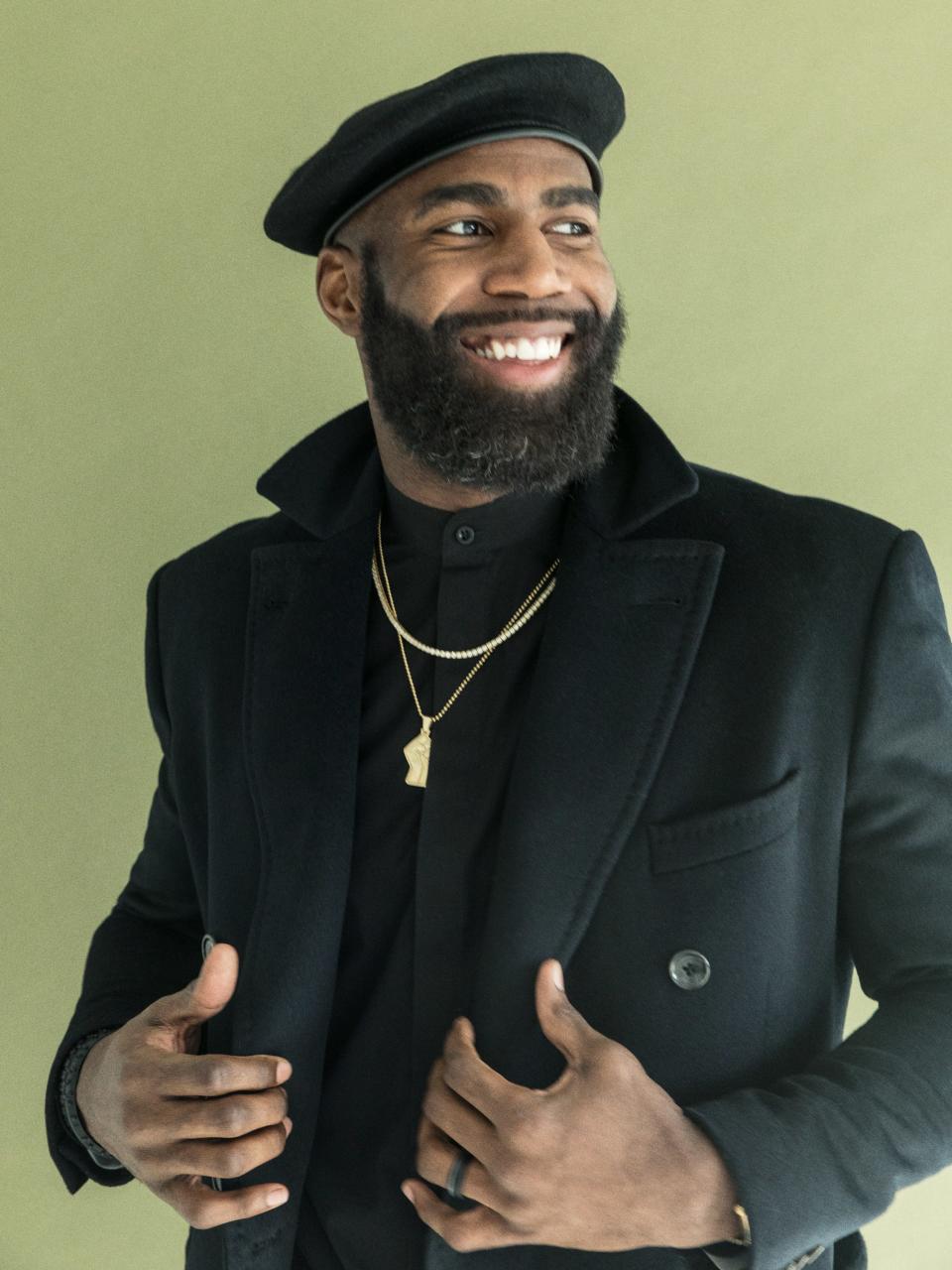
GQ: How come you guys wouldn't let poor Kevin Hart on the post-Super Bowl stage?
Malcolm Jenkins: I don't even know how Kevin got to where he was at. He had to get form the stands onto the field, then he got over this other barricade to get to that little pit area. I saw him sneak in there. Somebody just wasn't looking and he just stepped in. For Kevin's sake, they wouldn't let me on the stage. The guy's like "No, they're telling me it's only Nick Foles and Zach Ertz, so you gotta wait until they finish all the broadcasts and stuff." I'm like, "Man, I play for the Eagles!" I felt like I was at the club: "Coach! Get me in!"
Is there like a team pregame before the parades?
[laughs] I wouldn't say pregame. A couple days before, when we got back to Philly, we had a team meeting, just to give us the logistics, and they're like, "I know we all want to have a good time, [but] just try not to bring any alcohol." And I laughed out loud. Because I showed up with three cases of Martell.
Did you see the tweet from Hardee's that was something like "We really want to serve you guys biscuits in the morning to celebrate, but in order to do that, you have to not burn us down to the ground."
[laughs] Yeah, close up shop. By the time we got to the parade, they had blown off the steam, but I remember after the game, I'm getting interviewed right on the field and they're like "What do you want to say to Philly fans?" I'm like, "We can't wait to get back to the city. I know that city is literally on fire." And by the time I got to the locker room, they were showing me pictures of cars on fires, couches on fire.
"So we gave an officer like $700, he turns his lights on, leaves, and comes back with like two boxes of [alcohol] for us."
Did you learn any lessons from the Super Bowl you won as a New Orleans Saint your rookie year that you used this time?
Definitely. I was a pro at it this time. In New Orleans, it was right before Mardi Gras, but there was probably 900,000 people down in the streets. I just assumed that there'd be alcohol or something on the floats. And then it was like the streets are closed so we can't even make a quick run to get it. So we gave an officer like $700, he turns his lights on, leaves, and comes back with like two boxes of stuff for us.
What was that conversation with the police officer like?
It didn't take much. [laughs] It was like, "We need some liquor. Can you get us?" He was like, "Yes." Gave him the money and done. Lights on. He was back like 20 minutes later. That didn't take much convincing. Not in New Orleans.
Do you remember when you first started playing football?
Fourth grade. The first two years I played, I hated it. I was playing, like, backup right guard. This is no exaggeration: in Pop Warner, they have a mandatory rule that each kid gets at least seven snaps. Coach would put me in for my seven snaps, and he'd take me right back out. So the best part of the gameday, when it was over, all the kids lined up, you smack hands, high five, and then it was a mad dash to the concession stand to get your free hot dog and soda. I won that race every time. That was my highlight every day.
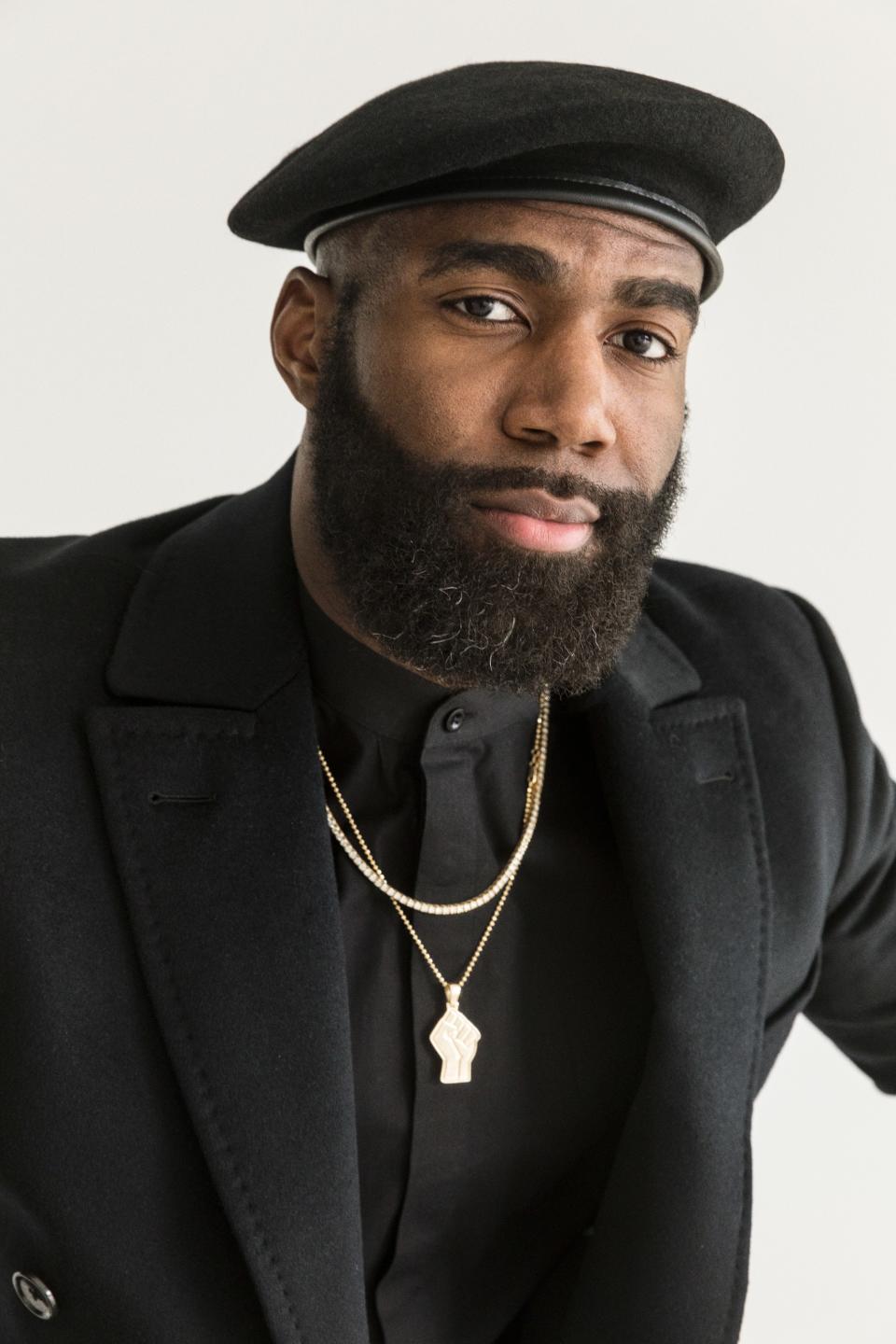
How'd your wife handle the stress of the Super Bowl?
She's more worried about me getting hurt than the actual wins or losses. I feel like she enjoys football, but especially games, if I'm extra amped up and I'm really trying to hit people, I think she gets nervous with that. I've been healthy—knock on wood—for the last four years, I haven't missed a game. So I been blessed in that manner, so she hadn't had to deal with seeing me get carted off or anything like that.
When something like that does happen—you know, I'm thinking of Ryan Shazier—I'm always curious how that gets processed in the locker room. Do you guys talk about that? Or what's the conversation that goes on?
It depends on the situation or the hit—how the hit looked, what happened. Sometimes there's things that are unavoidable, and those are the scary ones. Where a dude is not even contacted and tears his ACL, or the defender has no choice of where to hit you and you get a concussion. That could be anybody. Then there's some things like where you know as an athlete, like, yeah, I probably put myself in danger the way I approached the ball carrier right there.
Even Ryan's thing—he's known for hitting the top of his head and he's gotten away with it. It's totally unfortunate and you hate it, but it reminds you like, I gotta be smart in the way that I play this game and it's going to be violent, some things you can't avoid. But I think guys have been a lot more conscious of the way they tackle, the way they approach opponents, just because you can hurt yourself a lot of times. We talk about hits that give somebody else a concussion. But a lot of the times you can hurt yourself if you approach a ball carrier with the wrong technique.
A lot of the conversation—maybe not around Shazier, specifically, but more generally—is often that the league doesn't care enough about its players. Do you feel like the NFL does enough to protect the guys on the field?
I think the question is different. Because I would say I don't know that answer. What I feel like I know is that the league cares about preserving the game over everything. So if nobody ever knew what this concussion stuff was doing, we would continue as we were. But because there's so much fear of people playing ball, and everybody kind of knows the dangers of it, I think the league is doing a good job—or trying to do a good job of educating people and putting these protocols in place where now guys are getting pulled off the field just because their shoulders hurting. Just because it's so close to your head. There are new helmets, technologies.
But I don't think the motivation is about player safety. I think it's about preserving the game, and making sure that moms still want their kids to play ball. Because if high schools or parents aren't allowing kids to play, eventually you have no NFL. So I think the motivation there is the longevity of the game. And if they can do that, preserve the game while also making it safer for players? Then, great.
"I think the league is doing a good job—or trying to do a good job of educating people... But I don't think the motivation is about player safety. I think it's about preserving the game."
Have you done the thought experiment at all of whether or not you'd let your sons play?
I'd definitely let them play. I wouldn't be in a rush to put them in full contact, now knowing that there's no rush to put them into it, unless they wanted to. But the game has taught me so much and given me so much, and the game is way different than ten years ago. So it's trending in a safer way, but you always understand that there are risks. But what the game has given me from a monetary standpoint, what it's taught me about leadership, teamwork, camaraderie, problem-solving, adversity, it's literally prepared me for any realm I want to go to in life. A lot of people like to laugh at this whole "jock" mentality, but to be quite honest, football has prepared me to walk into so many different spaces that I don't have formal training in. Like I said, I've been playing since the fourth grade—what other industry trains you up like that, for that long?
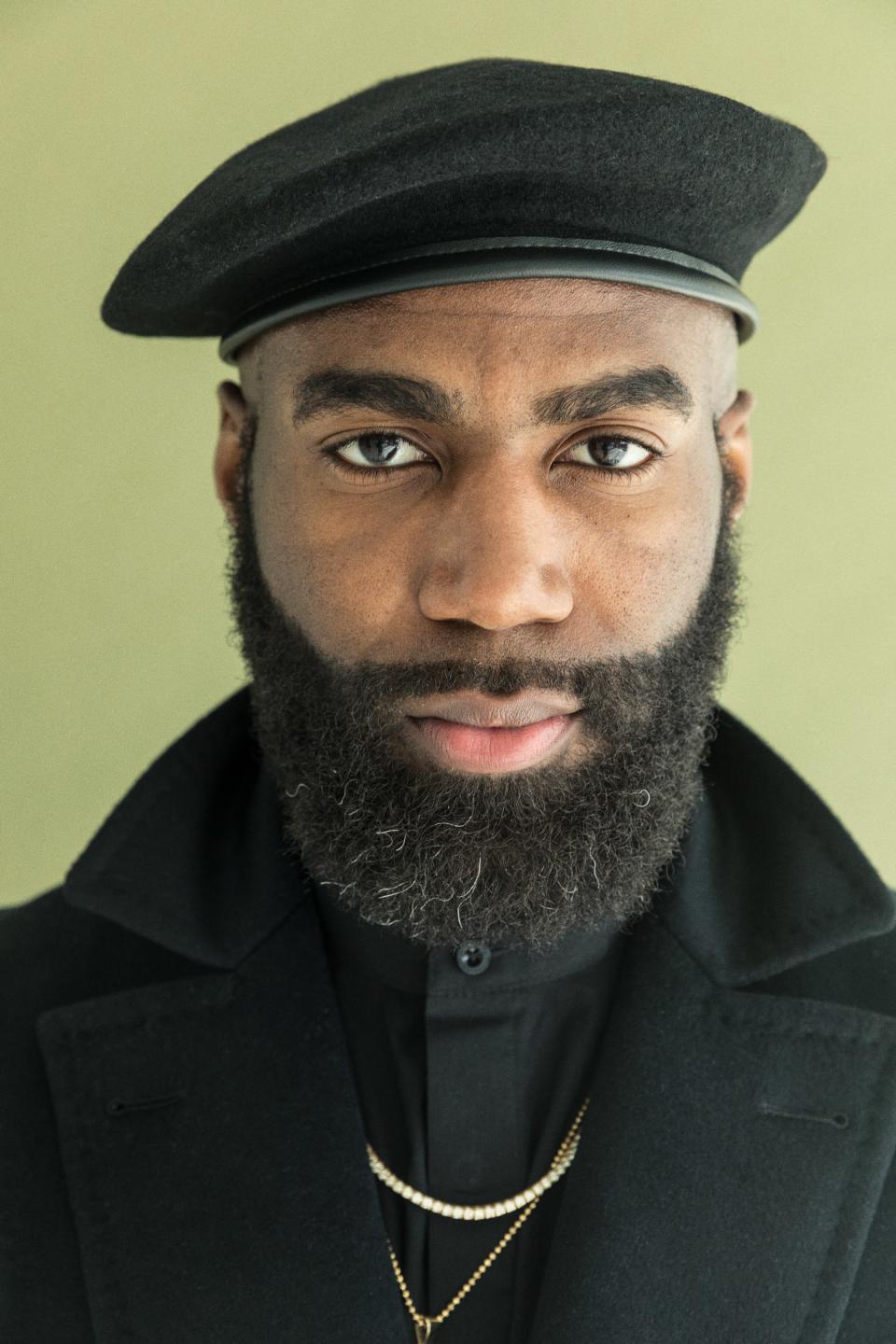
When you see something a report like the one last summer that 110 of 111 NFL players’ brains in a study showed signs of CTE, how do you digest something like that?
Honestly, that stat made it easier for me to play, because there's nothing you can do to avoid it. If nine out of 10 are going to get it regardless of how you play, or what position, then there's no need of me fretting over it. I'll just continue to monitor myself. And continue to, every year, weigh the options: Is this worth the risk? If so, cool. If not, then you step away from the game. It is something that we think about a little bit more now than ever. How long we want to play the game? How much you want to get out of it? And is it worth it? I think each individual guy kind of weighs that as their career goes on.
There's no graceful segue here, but switching to style: I need to ask you about punter Donnie Jones wearing sweatpants onto the field.
I thought you was gonna ask about his do-rag. He has this alter ego. He calls it Donnie Do-Rag. When we're up big or something, or we've won a big game and we're on our way back, he throws on his do-rag. There's a picture of him right after the Super Bowl with it on, and somebody gave him this gold chain.That's probably my favorite character on the team.
He retired though, right?
Hopefully Donnie Do-Rag didn't retire, just Donnie Jones. Donnie Jones, he can ride off into the sunset with a great career but, I need Donnie Do-Rag to come around.
Let me preface this next bit by saying that you rock the bald head look very well.
I have to. I have no choice.
Well, that's my question. Because I saw photos from rookie year and you still were fighting the good fight. I'm curious when the moment was you got to the point where you were like, Alright, I've got to commit to the full shave now.
I think it was 2016. It was right after the season and and I just got to the point where I’m like, “I've got a two week gap right here where I'm not making any appearances, nobody's going to see me. I'm going to just try it out.” I didn't even know if it would grow back but, I was just trying to see. So, I actually had my barber cut it like real low. And then it was like one of those—you know how guys hold on too long? And they cut it low, they try to still create a straight line but it's only like half way on their head?
[cough] LeBron James
[laughs] He may or may not influenced me giving up the fight. So I went bald. Asked my wife to just put it out there on Social Media to see what the reaction was going to be. I think my beard obviously saved me. So, I could never cut my beard. Ever. And when I look back [at photos of me before I shaved my head], it looks terrible. I got to really question my friendships. Because I had a lot of people telling me, "No, it’s not bad man. You good." That was bad.
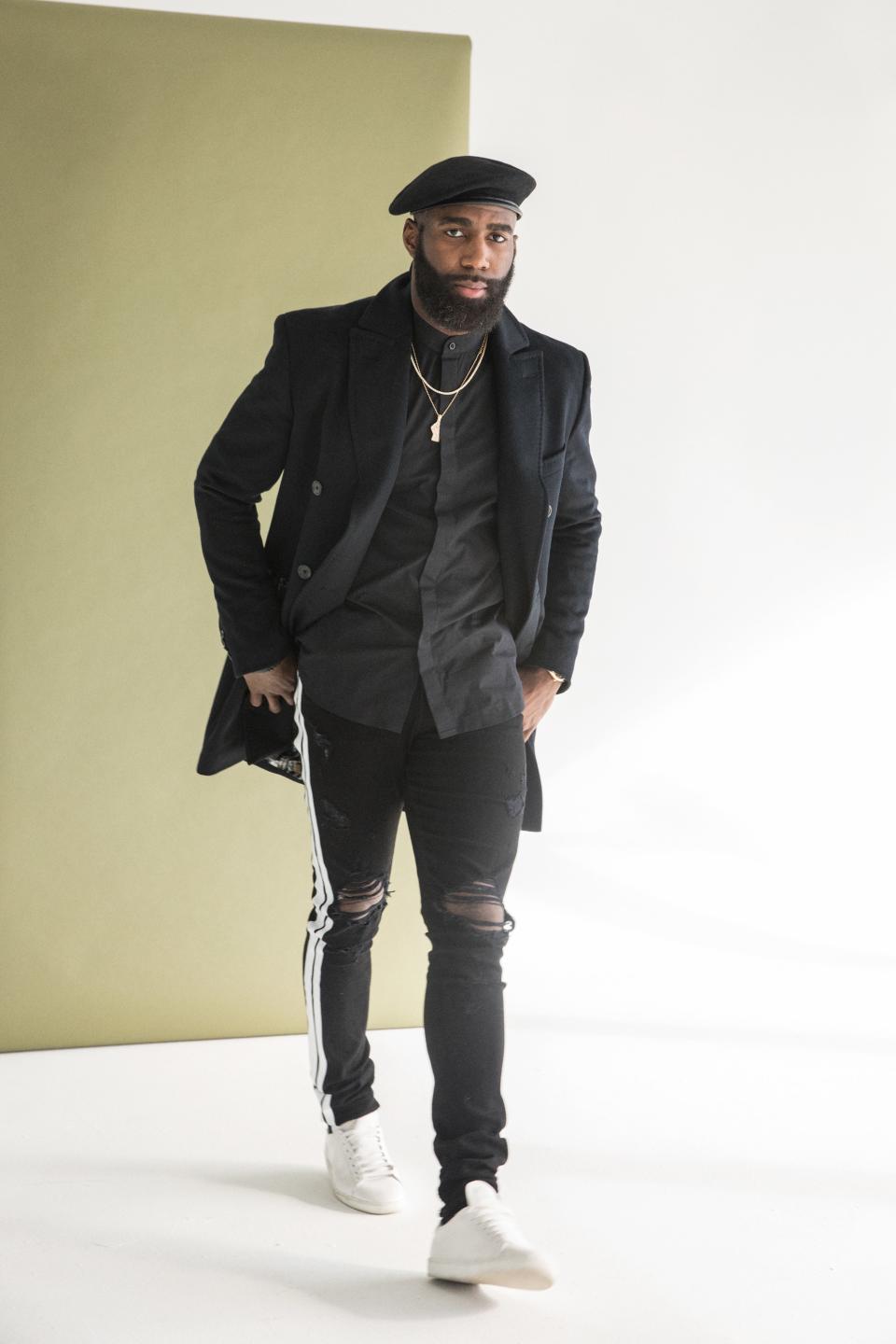
We haven't talked at all about activism because I think you've talked about it a lot. I've seen you've say that you wouldn't go to the White House. But I guess one question we've been kicking around here is: there was a lot of conversation this year, especially in the beginning with so many players kneeling, and then as the year went on I think less and less people were doing so—so what's the next step?
2016 was really that year of the conversation. Colin was the first one to take a knee and that sparked this whole movement. In 2017, there was more action than what people were really seeing. We started what we're calling the Players Coalition, current and former NFL players that are going to be focusing on pushing forward different pieces of legislation. Also, raising money for grassroots organizations that are dealing in one of three areas: criminal justice reform, police community relations and police accountability, and economic and educational advancement.
The biggest thing is continuing to get people to participate. We want to take our platform and educate our fan base to not only point out the issues but to point towards solutions and how everybody can take a part in it. Because, quite frankly, that's the only way we'll get anything done—if the masses move. And to do that sometimes you have to tell some stories. You've got to bring some voices that haven't been heard to the table. Plus we started this initiative, alongside the NFL, called "Let's Listen, Together." It's an initiative similar to what they've done for Breast Cancer Awareness. Salute the Service, where you're taking these three week four week blocks and talking about what ever that issue is. They've also committed to giving 89 million over seven years to those causes. To organizations that we pick. This offseason is going to be another busy one. But you'll see more,and more guys start the transition from that place of conversation and demonstration to okay, now here are the solutions. Let's attack these areas.
This interview has been edited and condensed.
